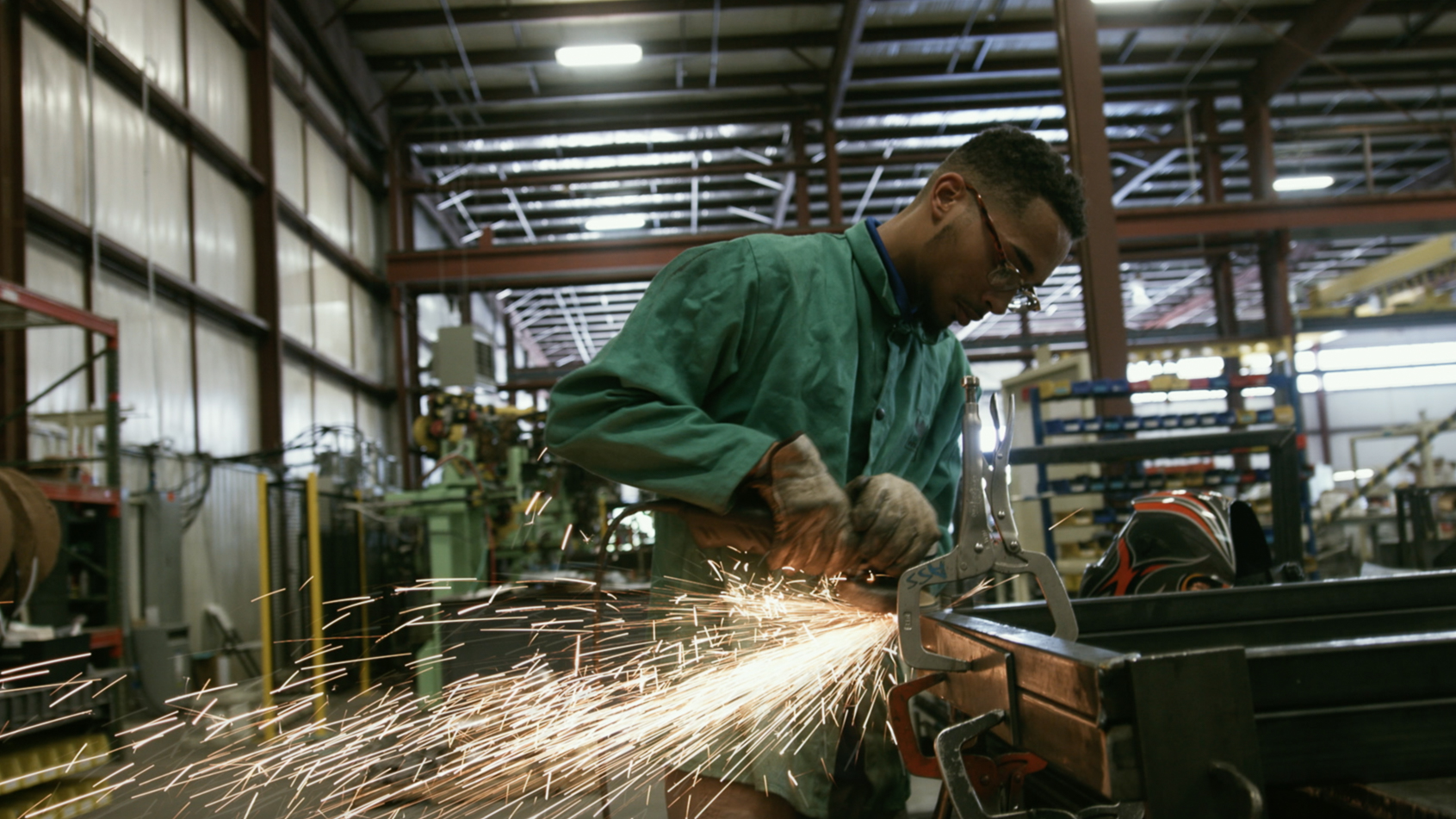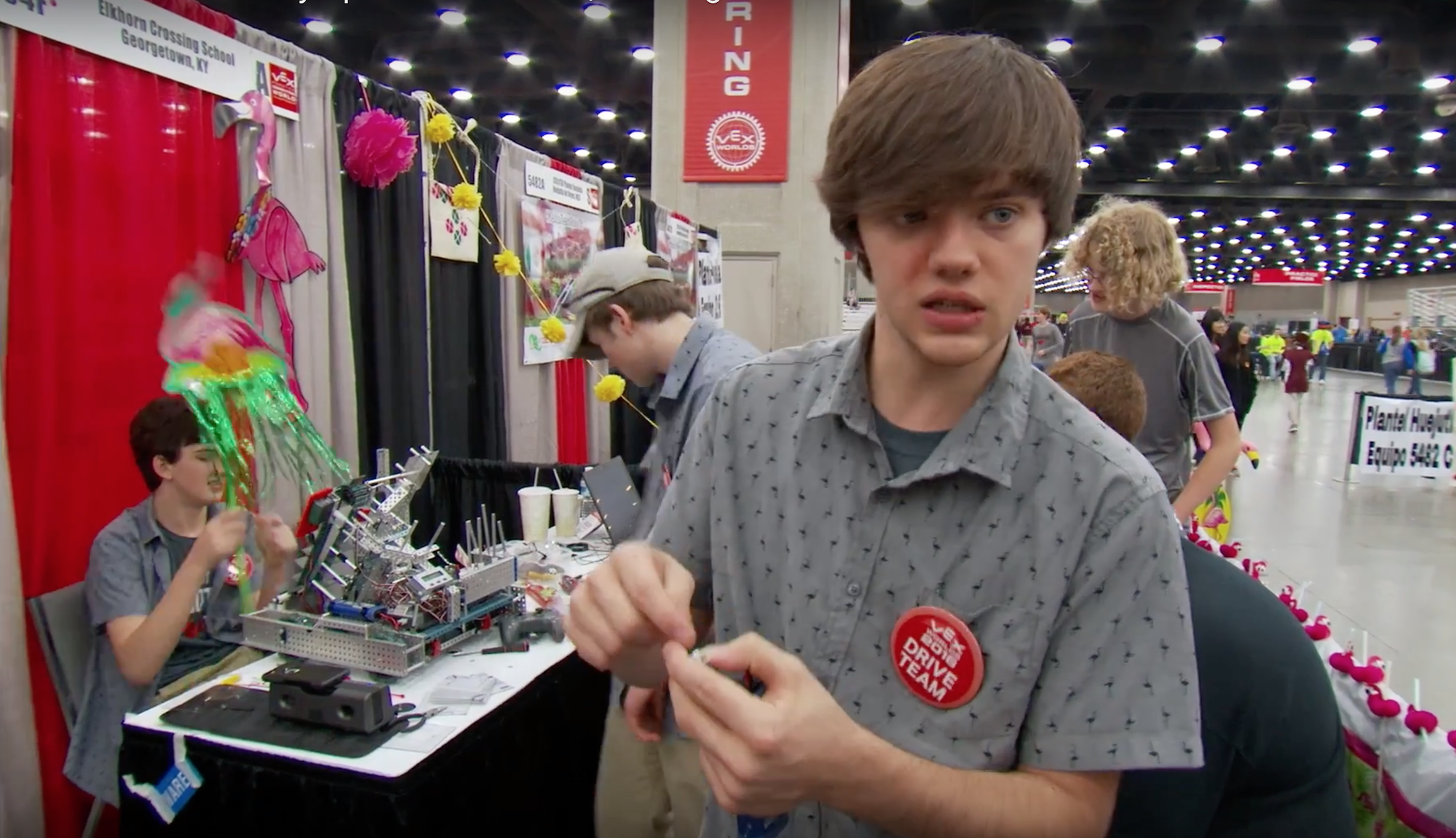Educational approaches that emphasize problem-solving and teamwork are preparing the workforce of tomorrow for any possibility. At the international VEX Worlds Robotics Competition, “VEX Robotics World Championship,” Barbara Kopple witnesses how youth working as a team on their own specially-designed robot allows them to develop skills that are becoming essential in the jobs of the new economy.
The American economy, as most of us have always known it, is being disrupted by automation and globalization.
Many are very familiar with this growing problem. I thought I was too. However, when asked last year to consider creating a documentary project on the subject, I was unprepared for the complexity of factors at play here, in particular the shrinking of the American Middle Class and the lack of honest talk about what most people can sense happening all around them.
From my viewpoint, as a storyteller, I understood there was an issue to be explored. How could I as a filmmaker approach it in a manner that was true to myself and relevant to creating a much-needed broader discussion. I felt strongly the films I would make needed to be grounded in the stories of people, first and foremost, and find solutions and hope.
While I do not believe we’ve found this on the national level, what I did discover locally was incredible people across this nation bravely and admirably adapting to the changing times that have been thrust upon them. By way of the hope I was seeking, I also discovered individuals and organizations that have developed some incredible and nationally replicable solutions.
In Rochester, New York, once home to the mighty Kodak plants that manufactured the film stock I have used for many of my movies, I found a community in transition, but a people unbroken. Financial fortunes might not be what they once were there, but it was important to me to learn through them how adaptable the American worker is. Terry Rood, a mechanic for 30 years on Kodak’s perforation machines who had planned to retire there like his father did, says he is much more fulfilled now helping people at the entrance to the local hospital. As things change, often in scary ways, those changes do not defeat us.
There is no question in my mind that there is a need for more jobs that offer livable wages. The lack thereof is certainly not due to any lack of able and willing people to do the work. In our first film, A Story of Yesterday & Today, we contrasted Rochester with San Francisco, where the digital economy employs a fraction of the people Kodak once did but offers perhaps better opportunities to individuals able to think outside the box.
I entered this project with a sense that there was a lot of hopelessness out there. While there are certainly people suffering during this change, what I discovered changed my thinking. I found people like those you will meet in our next film, A Year Up, who are offering new and meaningful ways for young people to gain mentorship and guidance to careers their parents and grandparents felt unobtainable.
One young man, Christopher Hilliard, made the transition from a self-described “out of work security guard” into success at one of the world’s leading global PR firms, in less than a year. His brother told us he believed it was always there in Christopher, waiting to be discovered. This is a program that could and should be in every city, town and suburb across the country. The talent is there. We need to work on more Year Up‘s that expand the opportunities.
In the middle of Kentucky I also found what I believe to be a potential solution to the “skills gap” we hear so much about. When I came of age, employers helped with job training and re-training. Somewhere along the way, in the 1980’s and ’90’s, this once shared responsibility was shifted solely to the employee.
When the recession hit and people were pushed out of the workforce, many could no longer afford to retrain at technical schools. A great gap was opened. What Toyota has created in the Bluegrass State is truly remarkable, as captured in our upcoming film, The Model of the Future. It’s an admission of sorts that the employer/employee relationship is symbiotic and that while humans may indeed be a commodity we are one not to be taken for granted. It is a tremendous program that I know can be duplicated broadly.
Many experts told us that it is impossible to predict where this change will take us. All believed, though, that certain skills like teamwork, creativity and problem-solving will remain technology-proof going forward. At this year’s international VEX Worlds Robotics Competition, we witnessed how young people working in teams on their own specially-designed robots allowed them to develop these kinds of skills, ones that will make them essential in the jobs of the new economy. You can see for yourself in our final film, The Olympics of Robotics. Directing it showed me that many of our youth are much further ahead of curve than the rest of us. If we want a bright future, we should be strongly behind initiatives like VEX.
Making this series of shorts challenged me to look at the state of work. What I found was not what I expected. The tone and nature of the national conversation needs to change if progress is to be made, if many of us are not to be left behind as the world changes. I hope these short films can offer a catalyst in some small way to begin some very important discussions.










